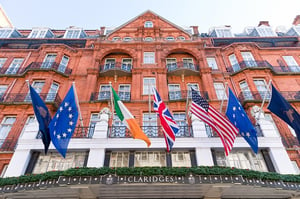Europe is the “sick one” and America has recovered better than Europe “thanks to the health of its corporations and the strength of its universities and legal system”. That’s what Jamie Dimon, CEO of JPMorgan Chase & Co, declared to Bloomberg a couple of weeks ago.
Threat of criminal proceedings in the U.S.
But hold on a minute. Isn’t Jamie Dimon the banker who paid USD 2.6 bn to settle claims brought by the U.S. Department of Justice in connection with his bank’s role as principal banker of Bernard Madoff Investment Securities LLC? And didn’t JPMorgan Chase & Co pay USD 22 bn to settle claims tied to issues ranging from misrepresentations on past mortgage-bond sales to the 2012 “London whale” trading debacle? These settlements have led certain commentators to conclude that the U.S. government was going too far in using the threat of criminal proceedings in order to extract large payments from banks. Some did not hesitate to accuse the government of blackmail.

Yet that same man who agreed to pay USD 22 bn to draw a line under the financial crisis is now claiming that the U.S. is recovering better than Europe, amongst others thanks to its legal system! He does not seem to agree that he was abused by his own government, on the contrary, he thinks the U.S. legal system has helped the country to recover faster.
Not sure whether Baudouin Prot, former chairman of BNP Paribas, would agree…
Jamie may be right, though. Look at it from this angle. The U.S. forced its banks to take their losses and recapitalize much quicker.
As a result, U.S. banks have been able to recover and return healthy profit margins much faster than their European counterparts.
This has also allowed them to come to terms with the past. Forcing banks to pay for their mistakes of the past helps them to turn the page and to rebuild confidence with the public at large. Those investors who were misrepresented by the banks will not easily forget, but a large settlement under which they can actually recover some of their losses and in which banks recognize their mistakes helps to make global peace.
What would banks actually need?
It is therefore not surprising that the very banker who paid USD 22 bn to settle claims stemming from the financial crisis is praising his country’s legal system. In Europe, authorities may be afraid of penalizing institutions that are weak already. Or they may be too closely intertwined with the banks to take a truly independent approach. But it doesn’t mean that we’re paying the banks a good service. What they need is tough action from authorities, much faster recapitalization and loss absorption, and legal mechanisms in order to let them come to terms with their mistakes of the past.





